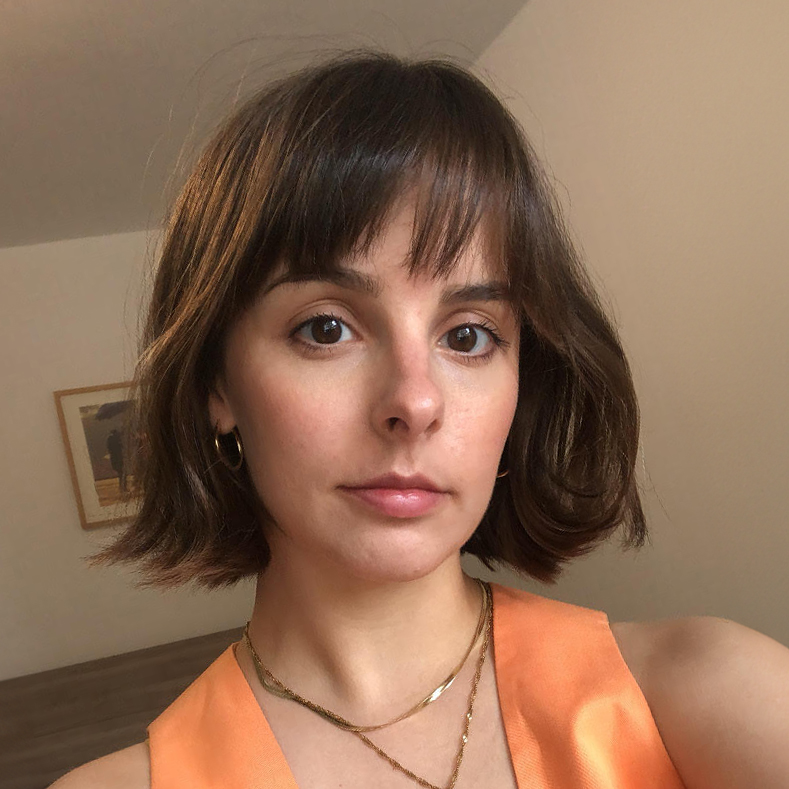‘I’m not impressed by an Oxbridge education’: Author Jessie Burton on her acting ambitions, writing ‘The Miniaturist’ and her consuming passions
The Sunday and New York Times bestselling author wrote her debut novel under her desk while temping as a PA for private equity companies. Lotte Brundle meets her.
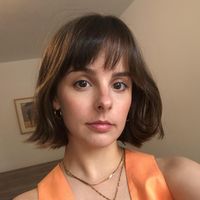

Exquisite houses, the beauty of Nature, and how to get the most from your life, straight to your inbox.
You are now subscribed
Your newsletter sign-up was successful
Jessie Burton is wearing a leopard-print top, a chunky necklace upon which hangs three large flowers and a yellow headscarf in her short brown hair, when I meet her for tea at The Coral Room in The Bloomsbury Hotel, London. Her appearance suggests a flamboyance and a loudness — one that her character does not match. The woman across from her has just been taking a work meeting on Zoom without headphones, she informs when I arrive, with a look that screams: ‘The audacity!’ The author, despite her animal prints and bold jewellery, is quiet and reserved, a self-proclaimed ‘worrier’ — she would never take a Zoom call in a public place. She is also clearly still not entirely comfortable with the attention her books have garnered her. Which is a lot, by the way.
Her debut novel, The Miniaturist, set in Amsterdam in 1686 and inspired by a doll's house she saw on holiday on display in the Rijksmuseum, appeared on shelves in 2014 to mass acclaim. It was the focus of a furious bidding war between publishing houses at the London Book Fair in 2013 and went on to become an international bestseller. It won the Waterstones Book of the Year Award in 2014 and, by 2016, had sold more than one million copies in 37 countries. A number one Sunday Times bestseller and a New York Times bestseller, it was no surprise when the BBC commissioned a two-part television adaptation which starred the Golden Globe award-winning actor Anya Taylor-Joy and which aired in 2017. Jessie went on to write The Muse, The Confession, The House of Fortune — and three children’s books.
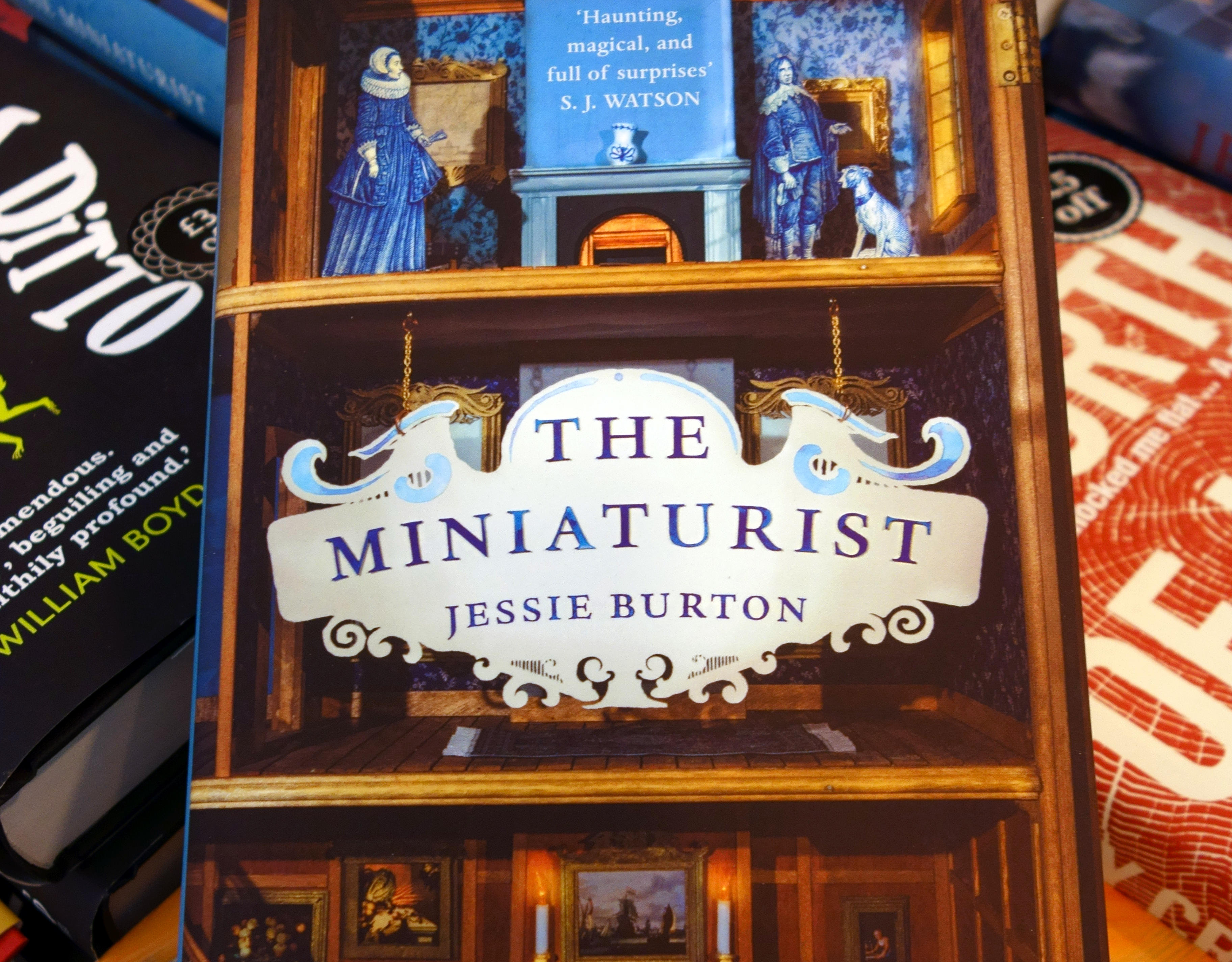
Jessie's book 'The Miniaturist', which is set in Amsterdam in 1686.
Born in Wimbledon, the author is a south Londoner through and through. ‘It was that sort of quite classic zone three of the tube map, suburban, lots of green spaces, but lots of things to do,’ she says of her upbringing. Jessie is an only child. Her mother, a teacher of business studies, and her father, an architect then ceramics restorer, met in Battersea, where they are both from, age 14, and have been together since (they are now in their 80’s). Jessie describes them as ‘bookish people’.
‘I didn’t grow up in a household where everyone talked about their feelings very much, and I think that’s quite a rich breeding ground for a novelist, because you fill in the gaps, and you fill in the questions and the silences and the suppositions with your own stories,’ she says. ‘My parents were very affectionate and loving towards me, but they didn't ever really burden me much with their emotional lives, and I think, possibly, my curiosity about the way people are ... does stem from a childhood of feeling like you're on the outside looking in.’
A post shared by Jessie Burton (@jessieburton)
A photo posted by on
As a young girl she excelled at school, confidently performing in plays, recitals and poetry readings. ‘I love performing,’ says Jessie, whose first ambition was to be an actor, not an author. ‘I didn't have great dreams of being a published writer, I had great dreams of being a famous actress — and when I say famous, I don't mean just famous for the sake of famous. I mean successful.’ Fame, I come to understand when it comes to Jessie, is the thing she finds most troubling. ‘What I loved about acting was participating in the world as someone else.’ she says. ‘I was me, but I was hidden to others, whereas when I write a book, all of me is in the book in one way or another, and then I go on to a stage at a literary festival, and I don't have a part to play. I found that really, really exposing.’ Having to talk about your creative process, the author says ‘is like killing it. It’s awful’. I won’t lie and say this didn’t put an elephant shaped dent in the flow of our interview because, well, it did. Jessie does not like to do exactly what she is doing with me. Revealing herself to the general public.
Passionate and curious, the author prefer that her work speaks for her. Jessie thinks publicists assume she is happy to be a front-facing author because of her acting background, but it has led to burnout in the past. ‘I invariably think I’m going to disappoint them,’ she says of guests at book events where she is speaking. Jessie is many things: thoughtful, tenacious, passionate, curious and, at times, nervous, but disappointing is definitely not one of them. She went to Oxford University (Brasenose College) the first in her family to got to University straight from school and the only one to attend Oxford. While she admits that she met many smart individuals while at University, of some of her classmates Jessie is less complimentary. ‘Not that many of them were very clever,’ she says, of those who waltzed easily into jobs on Fleet Street and in the Houses of Parliament because ‘someone’s Godfather’ has pulled a few strings. ‘It’s shocking. I’m not impressed by an Oxbridge education,’ she says.
After Oxford, where she studied English and Spanish, she went to the Royal Central School of Speech and Drama — an equally tricky establishment to secure a place at. While trying, and often succeeding, to make it as an actor Jessie picked up temp positions, as a PA, often for private equity companies and always on short-term contracts — so that she could nip out for auditions (and out of a deep-seated fear that she’d get stuck there someday full-time).
Exquisite houses, the beauty of Nature, and how to get the most from your life, straight to your inbox.
She acted at the National Theatre, in the ensemble and always waiting for a bigger part that never came. She was 27 when she started to write, ‘not from a place of great inspiration and happiness, but a place of rage and restriction’. While on a creative course with the publishers Curtis Brown her writing intensified. ‘I tried to do the quietest jobs possible so I could write at work and make it look like I was working, which I did,’ she says. Eventually, she finished The Miniaturist. ‘I would have been really happy with 5,000 copies in hardback,’ the author says. Little did she know.
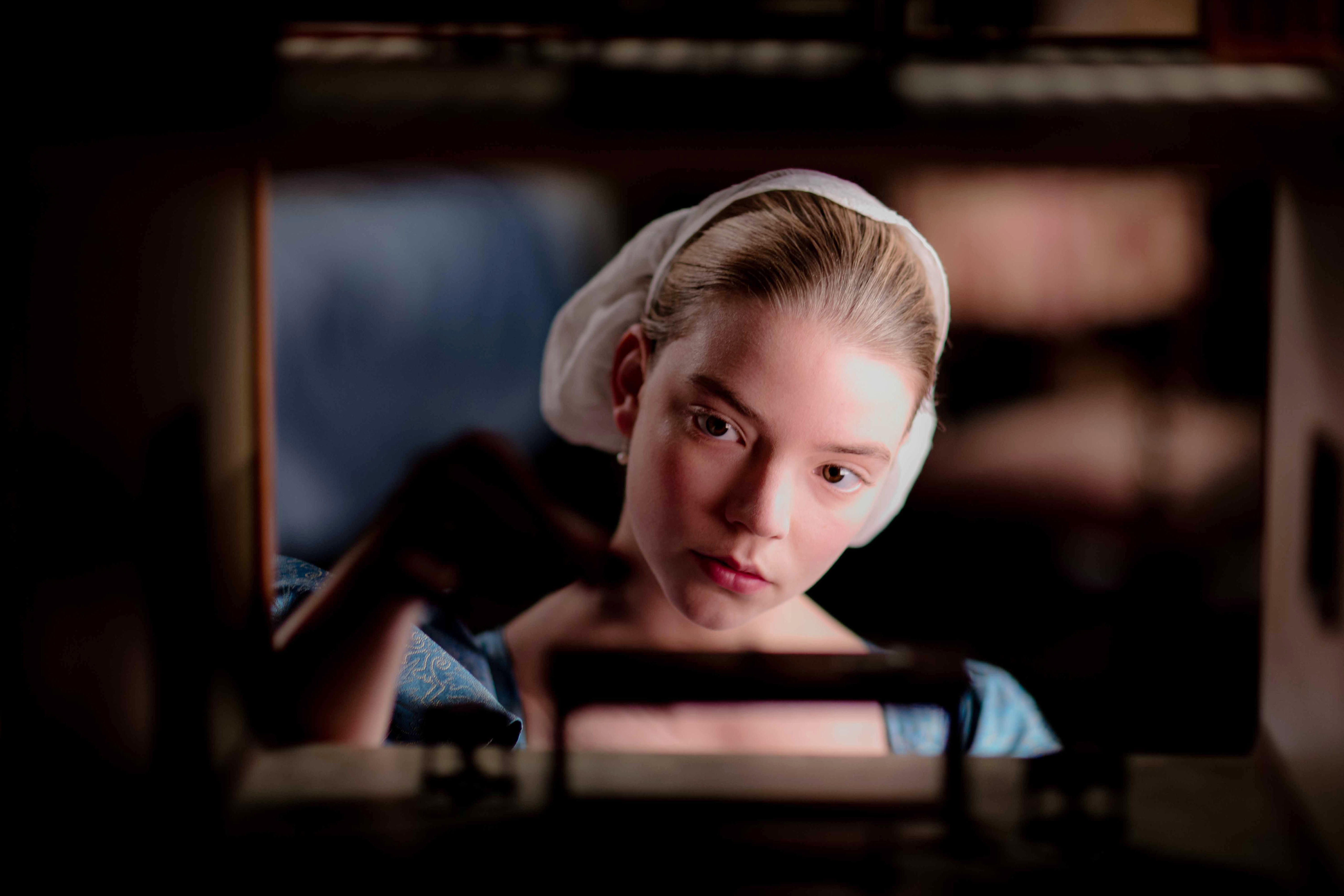
Anya Taylor-Joy in 'The Miniaturist'.
In a moment of incredible serendipity she had an on screen cameo in the TV adaptation of book. And yet, after all of her success, she remains utterly down to earth. She still loves a charity shop bargain and shies away from lavish overspending. And, she’s incredibly humble. ‘People don't read that many books a year, and if you're the book that someone's reading out of their one or two books a year, that's amazing, and so I never take that for granted,’ she says.
She turns back to me, while exiting The Coral Room, with a worried expression on her face. ‘Oh, I didn’t pay for that…’ she says, indicating her cappuccino. Unlike many others in her position, it's clear that the author still does not expect anything to be handed to her on a platter — not even a coffee.
Your aesthetic hero
Katharine Hepburn, Diane Keaton and Cate Blanchett. Women who are quite clearly still individuals and who, despite being part of the world of fashion or movies, have kept their distinctive personal style.
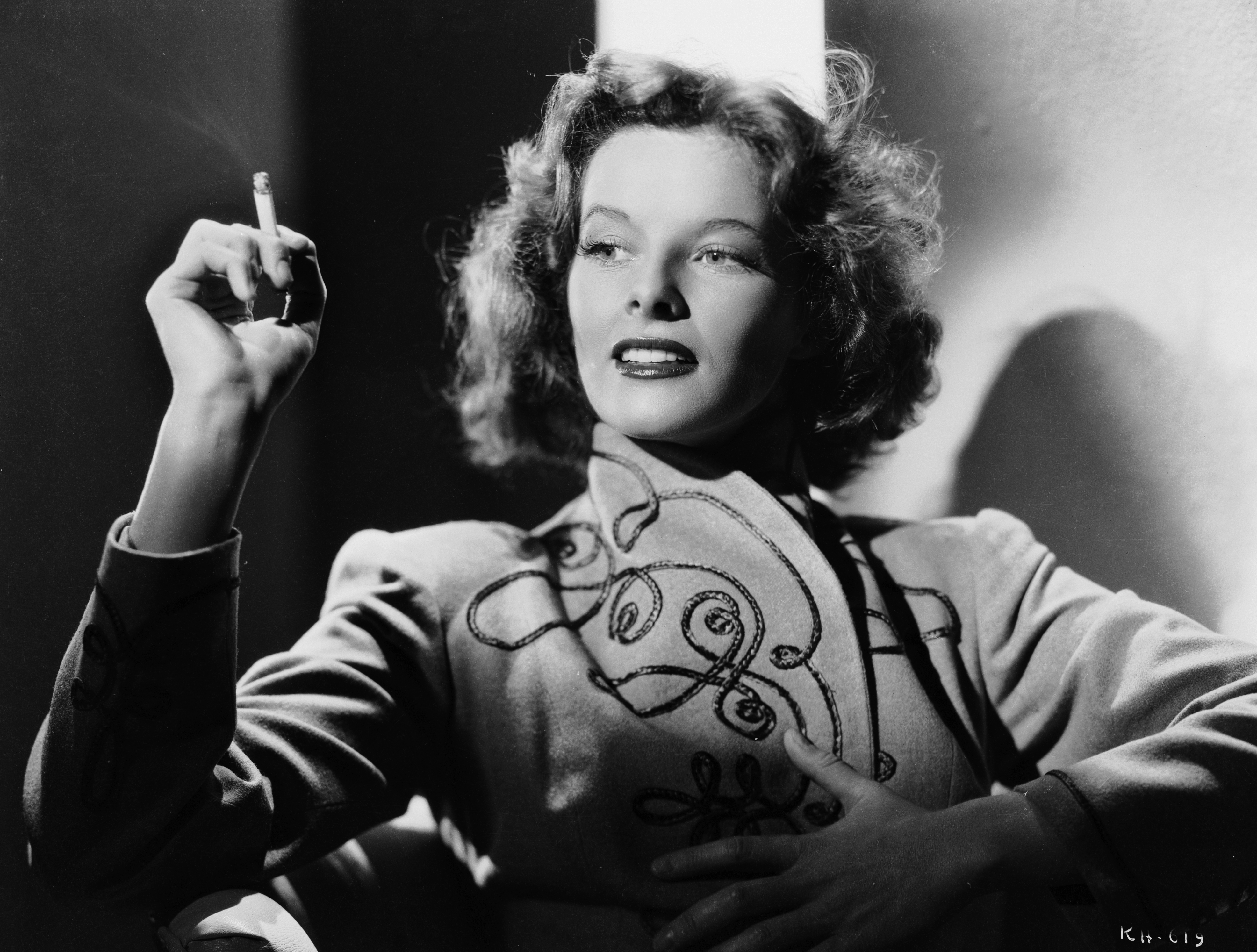
Katharine Hepburn — one of Jessie's aesthetic heroes.
The last thing of note you bought yourself
I was recently in South Africa, and there was this amazing ceramics stall — they work with women in communities, teaching them ceramic skills, and then they make these jewellery dishes and soap dishes in the shape of women with little babies on their backs, holding hands, and they're so beautiful. I bought a whole ton of them, and that would be the thing that I've bought most recently that's given me the most pleasure.
Your favourite painting
One by Dame Laura Knight, a self portrait of her painting a nude that's at the National Portrait Gallery. It's just so brilliant because, not only is she a woman painting, but she's painting a naked woman. It’s like she's had access, finally, to the life drawing classes. And it's very playful, but it's also very powerful.
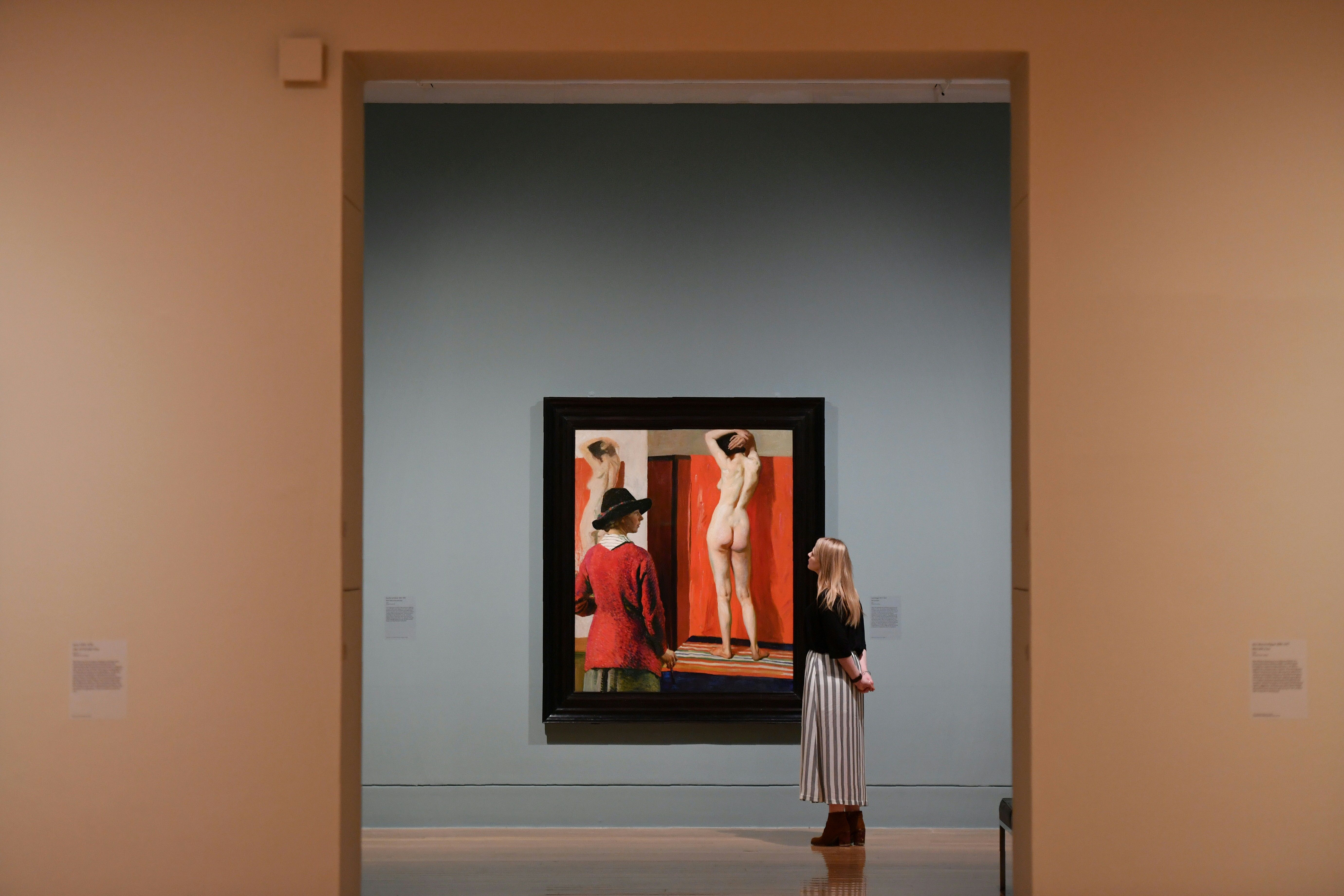
A book you’ve found inspiring
I'm always inspired by so many books, but a big book in my life, that practically everyone's read, is Hilary Mantel’s Wolf Hall. I think because when it first came out that was the year I started writing again, and her use of the past in quotes, her historical understanding, her understanding both of how things were not like they are now, and also how they are universally similar, was so powerful. And just the interiority of her characterisation and her humor in it, and the fact that it always just felt like this was a scene that was almost tangible and just around the corner was very inspiring to me when I wrote The Miniaturist, because I wanted that to capture that same sort of immersive, sensory experience that she gave me with that book.
The music you work to
I absolutely don't work to music. I could never. I couldn't even have piano music or classical music or white noise. I can't. I need the silence of the tomb, the silence of my mind.
A possession you’d never sell
One thing I know I would not part with, and also I think nobody would want as much as I want them, is the original illustrations by Angela Barrett for my children's book, The Restless Girls. She is such a wonderful, wonderful artist. Some of her brushes are just one hair, to do the whiskers on a rabbit or the glint on a car badge. She did the most stunning, practically miniatures, for my first children's book — so fine that they actually had to be magnified, which is normally the opposite. So they give me so much pleasure to look at, even now, and I remember that feeling — that alchemy of something I'd written being painted. I think that would be something I wouldn't sell.
A post shared by Jessie Burton (@jessieburton)
A photo posted by on
The last podcast you listened to
I really don't listen to podcasts. I think I have listened to about three in my entire life. I have the radio on. I like Radio Four, I like Radio Three, sometimes Radio Six, and that kind of scratches that itch.
The actor that would play you in a film of your life
Who would play me? I honestly don’t know. I think I need to age a bit more to find the woman who would play me and do a few more exciting things I think, before it merits a biopic.
What you’d take with you to a desert island
If I went with my family, we’d take a bucket and spade and some crisps and some cold beers. If I went on my own I’d take my record player, my records, a notebook and a Welsh tapestry rig for when it gets cold under the stars at night.
An exhibition that has really impressed you
‘Lee Krasner’ at the Barbican. She happened to be Jackson Pollock's wife, but was a painter in her own right, and it's a classic story of her actually being really amazing, but because she was married to Pollock, she got slightly sidelined. I remember going to that and the paintings were absolutely insane.
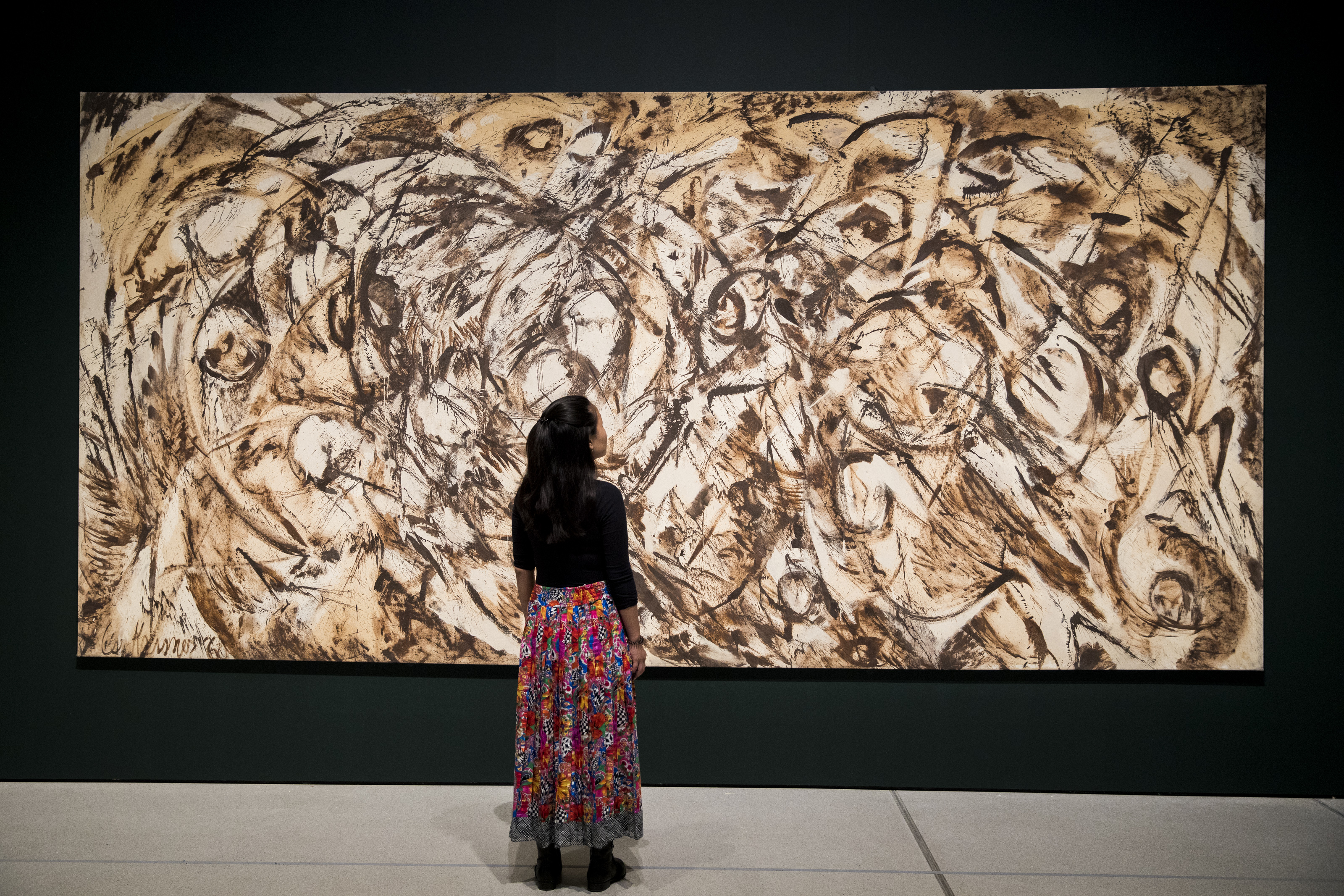
The Lee Krasner retrospective at Barbican Art Gallery in 2019.
The thing that gets you up in the morning
The prospect of some hot buttered toast downstairs with the radio on — I am a person of simple tastes — and the thought of having a hot cup of tea with The New Yorker crossword. That’s all I need.
The items you collect
I do collect ceramics and pottery, which I think comes partly from my dad, but also beautiful handmade artefacts. So I love copperware and pink luster ware and agate ware.
A hotel you could go back and back to
There’s one called Mama Ruisa in Rio de Janeiro, and it's run by this guy called John Louise. It was just the most beautiful, low key but elegant and chic place to hang out. You felt immediately stylish just by being there in it, but you didn't feel self conscious. And they had a big fat grey fluffy cat, I can't remember her name, but she would break into your hotel room at 4am and I loved it — it was one of those kind of hotels.
A post shared by Ruy Lage Turismo (@ruylageturismo)
A photo posted by on
The most memorable meal you’ve eaten
At a quite famous steakhouse in Buenos Aires. It was so good that a tear did actually come to my eye.
The best present you’ve ever received
For my 40th my husband got me a first edition of one of my favourite children’s books, The Traveller in Time. That was a very thoughtful gift.
Jessie Burton's children book 'Hidden Treasure' is out in hardback now
Lotte and Jessie met for coffee at The Coral Room in The Bloomsbury Hotel in London
Lotte is Country Life's Digital Writer. Before joining in 2025, she was checking commas and writing news headlines for The Times and The Sunday Times as a sub-editor. She has written for The Times, New Statesman, The Fence and Dispatch magazine. She pens Country Life Online's arts and culture interview series, Consuming Passions.
